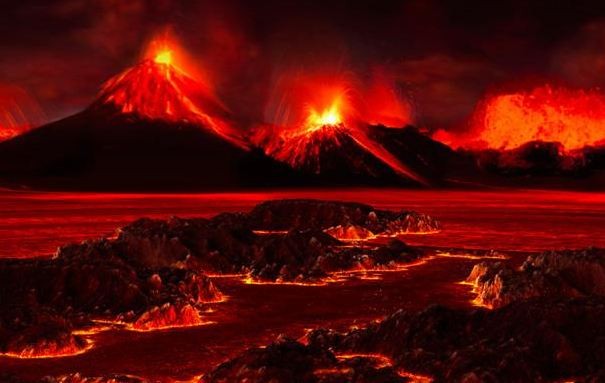"The Great Dying" 252 million years ago that wiped out 96 percent of all marine species and 70 percent of terrestrial vertebrate species was triggered by deadly ocean acidification and massive volcanic eruptions in Siberia.
The Great Dying at the end of the Permian period, also called the Great Permian Extinction, turned life-giving ocean waters into deadly oceans of acid that choked to death practically all marine life on the planet.
And worst, volcanic eruptions in Siberia that lasted millions of years hurled massive and toxic amounts of carbon dioxide, sulfur and other gases into the air. The entire extinction period is estimated to have lasted 60,000 years.
This chemical bombardment caused an acidification in which the excess carbon dioxide in the atmosphere dissolved into the ocean, turning the ocean poisonous. This acidification is believed to have made the extinction event inevitable.
The loss of life was so great it took the Earth over 10 million years to recover from this catastrophe.
These findings, however, could help scientists gain more insight into modern day threats caused by ocean acidification to sea life. Scientists said the current oceanic acidification is related to climate change.
Like climate change, ocean acidification is mostly being caused by human emissions of greenhouse gases. These gases are absorbed into the sea, lowering the water's pH level.
Scientists said the oceans have become 30 percent more acidic over the past 200 years. This acidification has led to the massive but little known extinction of 90 percent of marine species and over two-thirds of the animals present on land, said the University of Edinburgh.
"Scientists have long suspected that an ocean acidification event occurred during the greatest mass extinction of all time, but direct evidence has been lacking until now", said Matthew Clarkson of the University of Edinburgh's School of GeoSciences, who coordinated the study.
"This is a worrying finding, considering that we can already see an increase in ocean acidity today that is the result of human carbon emissions,"



























